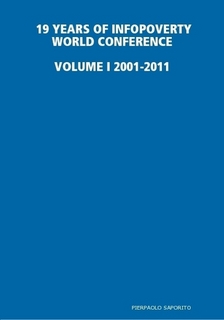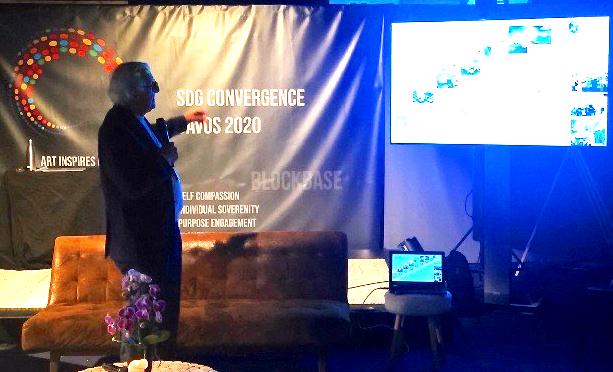
28Jan, 2019
It is calculated that the eight richest people in the world between them control the same amount of wealth as 2.5 billion of the poorest.
How can the massive flow of technological innovations bring development and raise the overall level of welfare, inverting the process of wealth concentration that makes the rich richer and the poor poorer than ever?
What can we learn from the previous industrial and electrical revolution, seeing that it has progressively improved social and economic conditions in countries where it originated in the 19th Century, from 90% poverty to present-day widespread wellbeing? Can new technologies defeat poverty and spur development? How does ICT (Information and Communications Technology) impact the life of the disadvantaged?
OCCAM, the Observatory on Digital Communication, was created by UNESCO in 1997 to work on these issues. In 1999, UNESCO, responding to calls by the people of Honduras struck by Hurricane Mitchel, asked OCCAM to promote solar villages by installing the solar panels in two isolated villages, San Francisco (in Lempira) and San Ramon, with the assistance of the Honduran Ministry of Technology, the Oklahoma University and the InterAmerican World Bank. These facilities permitted the experimental use of computers at a community level.
“Can new technologies defeat poverty and spur development? How does ICT impact the life of the disadvantaged?”
The program also made possible the construction of a school, a community centre and a dispensary. These efforts resulted in a connection from ONSATNET, a pioneer company for internet via satellite, which built a three-metre antenna, with considerable speed.
The newly-named ICT Villages saw increased e-learning activity in schools with surprising results; two top students became class tutors in Oklahoma. Thanks to medical consultations held between midwives and the regional hospital in the dispensary, it was possible to save the lives of at-risk pregnant women and new-born babies.
An internet point opened in the community centre showcased to the local farmers new solutions of cultivation, harvesting and storage, making use of suggestions from distant academic experts, who, working from photos and data, provided assistance and evaluated critical issues.
To share these results with a wider audience, at the suggestion of many UN organizations, OCCAM launched the first Infopoverty World Conference (IWC) in 2001, since scheduled annually at the UN headquarters in New York, organised in partnership with the European Parliament and other prestigious Institutions. The conference, declared a UN Flagship Initiative by the UN General Assembly in 2012, has enjoyed growing participation from public and private institutions and prominent members of academia, ICT companies and organisations within the UN system.
From discussions and proposals at IWC2, the Infopoverty Programme was created in 2002 with the aim of implementing ICT villages to help disadvantaged communities. The WSIS 2003 (World Summit of Information Society) in Geneva approved the ICT Villages Model, and realised, with the support of the Tunisian Government, the village of Borji Ettouil on the occasion of the second phase of the summit, held in Tunis in 2005.
Further ICT villages have been created in Meis El Jabal, South Lebanon, for a group of young refugees, in Villa El Salvador in Peru, for a community of women in difficulty, and in Mahobong, Lesotho, safeguarding a potato crop by training local experts and monitoring the harvest from afar. Other projects include one in Dagara, Ethiopia, supplying the community with didactic and special m-devices, and another setting up “ICT hogans” in the Navajo Nation.
Mission to Fight Poverty
The Observatory on Digital Communication (OCCAM) was founded with the mission to fight poverty using the new technologies, and to promote sustainable development actions in the Least Developed Countries (LDCs).
The acronym stands for Observatory for Cultural and Audio-visual Communication in the Mediterranean (OCCAM). It works to support the United Nations strategies for achieving the Sustainable Development Goals (SDGs), and former Millennium Development Goals (MDGs, 2000-2015).
OCCAM was established by UNESCO in Milan in June 1996, with agreements signed by the director general, Federico Mayor Zaragoza, and Milan mayor Marco Formentini.
Since 2003, OCCAM has been associated with the United Nations Department of Public Information, and in 2005 it received Special Consultative Status at the UN’s Social and Economic Council (ECOSOC).
Since 2006, OCCAM has been a leader of e-service development of Community of Expertise within the Global Alliance for Information and Communications Technologies and Development (UN – GAID) initiative launched by the UN Secretary General Ban Ki-Moon in Kuala Lumpur.
OCCAM is organised into five operational segments:
- Observatory on the phenomena of the digital revolution
- Research and experimentation on social-oriented ICT innovations
- The Infopoverty conference, which organises the annual IWC in NYC
- The Infopoverty programme for monitoring and management of the projects
- Communication and secretariat.
The observatory has two representations at the UN, one in New York and one in Geneva, and an international head of Institutional Relations.
The ICT Village project includes providing computers, internet and renewable energy sources (solar PV) to disadvantaged communities to enable them to promote their own sustainable development.
OCCAM, with many local NGOs, has activated other actions to support rural communities, orphanages and dispensaries in Ghana, Cameroon, Sierra Leone, Liberia, RDC, Mozambique, Burundi, Kenya and Zambia, providing connectivity and ad hoc services in the ambit of the Infopoverty programme. At IWC3, the first announcement was made of the Millennium Challenge Corporation by Chris Israel, the deputy minister of US Department of Commerce, and, at IWC7, the first peer-to-peer money-transferring experiments by Safaricom in Kenya. At IWC8, the network for rural internet access in Somalia was promoted by Youssouf Ismail Bari-Bari, Somalian ambassador to the UN in Geneva, late and lamented victim of a terrorist attack in Mogadishu in 2015.
Sambaina, in Madagascar, stands out. This ICT village was established in 1996, promoted by the President of Madagascar, Marc Ravolanama. The village’s dispensary, connected to national and regional hospitals using free public airband-width, furnished the maternity unit with e-ultrasound tools, decreasing the mortality rate. A local school, supplied with 40 computers, helped 320 pupils to find jobs by exploiting local rural and craft resources.
The municipal seat opened to internet community access. The entire population could learn how to access useful information and facilitate governance with e-documentation. Specialised assistance – in the harvesting of rice, cattle farming, pest-control and water and food security – was furnished to local farmers, as well as 85 doctors specialising in clinical imaging at the National University, able to assist with new mobile x-devices.
At its launch in 2007, a UN delegation led by Jeffrey Sachs proclaimed the ICT Village of Sambaina as a UN Millennium Village. It became the model for future projects and was planned to be cloned over all Malagasy territory, with 2,700 ICT Villages – but a coup d’état impeded this evolution. OCCAM continues to support Sambaina, and is relaunching the Millennium Village, with the support of STmicroelectronic foundation, Telma Foundation, and the courage of inhabitants and local institutions.
What can be drawn from these experiences?
- With the worldwide diffusion of mobile devices, everyone can acquire knowledge and skills oriented towards life improvement.
- Indigent peoples do not need charitable hand-outs as much as empowerment of their capacities to exploit their own human and material resources at local levels.
- Only adequate digital services, provided by competent institutions, permit disadvantaged communities to take control of their skills, receive healthcare, guarantee good education, use natural resources, give efficient instruments of e-governance, and supply people with identification, property rights, access to microcredit and e-commerce.
In this regard, OCCAM designed a special ICT-Village Infrastructure Module (ICT-VIM), consisting in ad hoc tech kits, oriented to upgrade the basic facilities for a Village of 1000 people (at a cost of $50K) and the IWC16 Conference, launched the Infopoverty Platform for E-Services, focalised on the achievement of the first three SDGs: No Poverty, Zero Hunger, Good Health & Well Being, restructuring Services Providers (academia, laboratories, hospitals) in a network that sustains local Services Users, able to furnish the needs of local Communities with solutions, sharing knowledge and competences efficiently to all.
The IWC18 launched the World Food and Health e-Centre, (WF&HSeC) created as legacy of Milan EXPO 2015, aimed at transferring knowledge and competences, enlarging the sharing economy to those hitherto excluded, promoting best practice and new tools, refining ICT innovations for performative solutions, and raising the standard of living to include medical care, professional assistance, and access to education-oriented job creation in an incremental process – governed by blockchain technologies.
Its network of service providers, composed of primary stakeholders (200 specialists, 40 universities and research centres, hospitals and organisations) brings together many of the agro-alimentary scientific organisations, the Smithers Foundation and the International Institute of Telemedicine to co-operate. This includes the sharing of appropriate digital services for telemedicine, food security, e-learning, and applications for new sensors and robotic devices.
This could be the new trend for sustainable social enterprises: people-centred, empowered by 5G connection, using wearable high-performing devices supported by AI and IoT, interacting with high-level service-provider clusters – to serve all 7.6 billion people.
The benefit of this trend is in an increase in the quality and quantity of food, and creating basic welfare for all. It could represent the most effective lever for development and value-creation, with a market outlook for 2020-2025 of 1.8% GDP.
All these issues will be discussed at the 19th Infopoverty World Conference, How Smart Cities can fight poverty by eliminating slums and promoting ICT Villages for rural development at UN HQ in New York on April 12, 2019, to be screened worldwide by UNTV.













